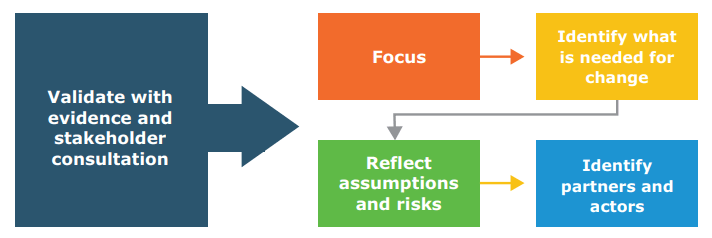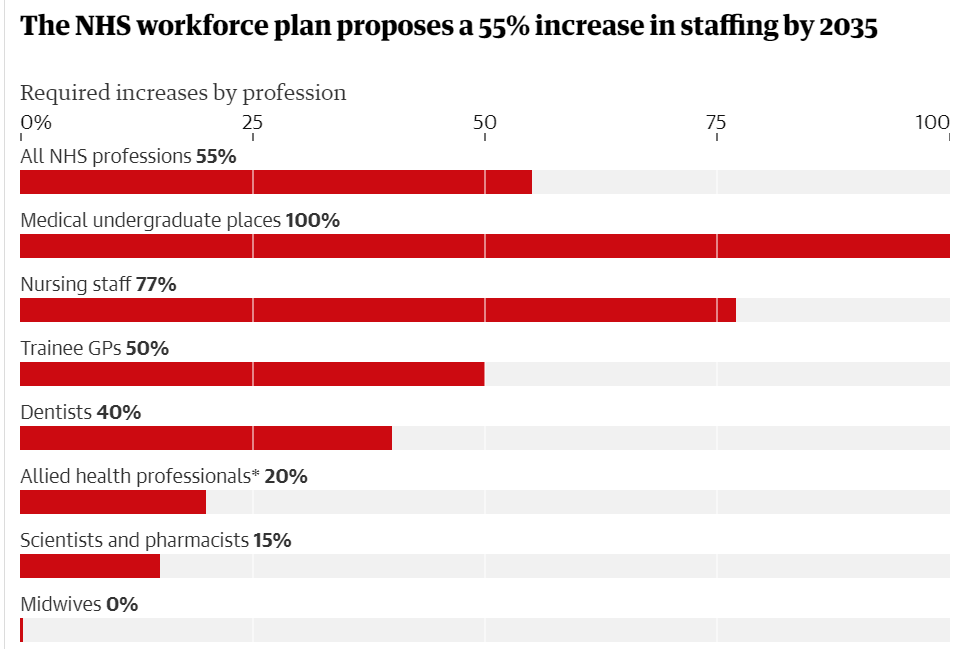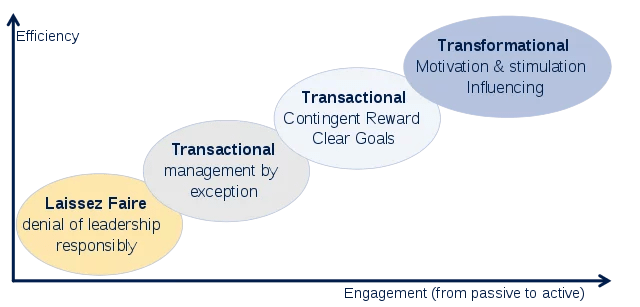Navigating Change: NHS England's Transformational Journey Case Study
In-depth NHS England case study sample by UK assignment experts from Native Assignment Help, detailing strategic transformation, healthcare innovation, and effective change management within the NHS system.
Ph.D. Experts For Best Assistance
Plagiarism Free Content
AI Free Content
Introduction: Navigating Change: NHS England's Transformational Journey
Theory of change refers to the particular method which assists in explaining how the intervention of change has happened to meet specific development goals based on causal analysis (Unsdg.un.org, 2023). This indicates that the theory of change helps in identifying effective solutions to address specific problems which are hindering the development process of an organisation and making the decision-making process difficult. However, change management processes should consider effectiveness, feasibility, and uncertainties besides comparative advantage, which are associated with the change management process (Unsdg.un.org, 2023). To develop a greater understanding of the change management process the National Health Services (NHS) has been considered as a case study. Following this, a critical analysis of the organisational change management or transformation management process has been explained with the use of Kurt Lewin's change management model and the ADKAR change management model. In this regard, the strategic importance of key functional eds that supports organisational change has been evaluated in support of literary evidence. Moreover, this case study report aims to evaluate what changes happened within the National Health Service (NHS). Contemporary management challenges faced by the NHS have also been outlined along with the implementation of SWOT analysis. Besides, a range of relevant theories of change management and leadership models has been outlined in this case study report to understand how successfully changes are handled within the NHS.
Are you in search of the assignment help online in the UK? Look no further than Native Assignment Help. We understand the challenges you may encounter during your academic journey, which is why we're here to alleviate your burdens. Our website is user-friendly, and our customer support team is available around the clock to assist students. Let Native Assignment Help provide quality services and relieve your academic stress today! Additionally, explore our AI-free case study for a comprehensive understanding of our work.

Figure 1: Theory of Change
Organisational background and stated required for a change
National Health Service UK (NHS) is the United Kingdom’s publicly funded complex healthcare system that started serving in 1948 and presently operates with 1226677 healthcare staff (England.nhs.uk, 2023). NHS UK is made up of a range of healthcare organisations, people and communities to fulfil different roles and responsibilities associated with healthcare specialities. Recently the integrated healthcare boards of the NHS made some structural and operational changes to improve their work. To justify changes and understand the need for change that occurred within the NHS UK brief SWOT analysis has been conducted which is as follows:
SWOT analysis
| Strengths | Weakness |
|
|
| Opportunities | Threats |
|
|
Table 1: SWOT Analysis of NHS England
Change happened in NHS
Change in public and staff engagement

Figure 2: Shared Purpose for Change within NHS
To address staff engagement and staff shortage issues the case study organisation took the initiative which is mentioned below. The aim of the new staff engagement strategy of NHS England is to enable sustainable change and deliver real benefits to staff and the broader community (McFadden et al. 2023). In order to meet these aims and objectives of the change management process the organisation forecast shared leadership to accelerate the change adoption process (McFadden et al. 2023). Apart from that, to enhance staff engagement NHS England focused on motivating and mobilising staff along with the use of improvement tools. The organisation initiated a long-standing partnership with the local community which has a wide range of views and holds the capability to ensure that they are meeting public engagement goals besides staff engagement approaches (O’Donnell, et al. 2022). This is indicating that the change management model used by NHS England is delivering a valuable framework which is enabling the authority to harness change which is effective and sustainable.
Besides, it is found that the change management model of NHS England which is based on shared purpose holds the capability to provide real-life benefits to their staff, patients and product community (England.nhs.uk, 2023). Apart from that, it is found that in ages the workforce plan has been modified and this framework is aiming to increase the staff by 55 % by the end of 2035 as demonstrated in Figure 3 (Theguardian.com, 2023). Along with that, it is found that is working in partnership with local communities to bring change in the future service and improve patients' perspectives and meet the needs of the public (McFadden et al. 2023). As a result, the authority recently included 50000 frontline staff to minimise staffing issues in the health and care services (England.nhs.uk, 2023). However, no spacing change in the communication strategy has been made as the newly appointed frontline staff are working with existing communication mechanisms (England.nhs.uk, 2023). On the other hand, to improve communication between different departments, NHS has taken initiated which is helping multidisciplinary teams to work together and to improve information-sharing approaches (Faghy et al. 2021). To briefly explain the overall change management process that happened within NHS England for the improvement of staff and public engagement, Lewin's change management model and ADKAR's change management model has been implemented below.

Figure 3: Workforce Plan of NHS England
Description of the change process that happened within NHS England
Description of the change process helps to understand how change is being implemented within one organisation from the preparation to the implementation stage (Morris et al. 2021). To describe the change process in the staff and public engagement within NHS England, Lewin's model and ADKAR model are being used, which are as follows:
ADKAR change management model
| Awareness | The awareness phase is the initial stage of change management which makes involved stakeholders aware of the upcoming change (Houben et al. 2020). In a similar context, Hamdo (2021) suggested that explaining the reason behind the change can help to develop awareness among involved stakeholders. In the awareness phase, the NHS took initiative to elaborate on why the staff engagement strategy requires change. Besides, the authority describes how the development of an effective team can help in achieving staff and public engagement goals (England.nhs.uk, 2023). However, the main aim of the organisation in this stage was to understand how moving with vision can help to employ a large-scale change in the staff engagement process (England.nhs.uk, 2023). |
| Desire | In this phase, organisations which are implementing change need to understand the desire for change among staff (de Lusignan, et al. 2020). NHS took initiative to conduct an employee burnout survey and considered the number of deaths caused by low safety and public engagement (England.nhs.uk, 2023). As a result, the authority decided to increase medical undergraduate placement by 100% by the year 2035 and decided to increase nursing staff by 77% by the end of 2035 (Theguardian.com, 2023). This is indicating that by measuring the concern of staff and understanding the needs of the public the authority took initiative to implement change in the engagement process. |
| Knowledge | This phase of change is all about knowledge and skill development as it helps to implement changes in a successful manner (Hamdo, 2021). For skill development, NHS England engaged staff in the Skill Development Network (SDN) which is a public site accessible by the public who are involved in the change process (England.nhs.uk, 2023). Through this SDN the authority delivered essential resources required by staff and the public which promoted personal as well as organisational development (Skillsdevelopmentnetwork.com, 2023). |
| Ability | de Lusignan, et al. (2020) said that the use of evidence-based knowledge measurement tools increases the models' scope of success. In order to measure the ability of staff in improving the quality of healthcare services, the NHS took initiative to access knowledge and experience and considered elements of equal measure to make the change programme successful and sustainable (England.nhs.uk, 2023). Moreover, the involvement of the evidence-based quality improvement tool helps the authority to implement change successfully. Though, the authority believes that no specific tool is suitable for all organisations because organisations should implement a change management tool according to their organisational need (England.nhs.uk, 2023). |
| Reinforcement | The stage of reinforcement helps to make the newly implemented change payment within the organisation (Hamdo, 2021). It is found that to maintain communication between staff and the public NHS is still using the old communication strategies (Theguardian.com, 2023). This is indicating that to reinforce changes within the NHS England made some mistakes because the existing communication strategy might not be effective to engage diverse staff and the public in the healthcare system. |
Table 2: ADKAR Change Management Approaches of NHS England
Lewin’s Change Management Model
The change management model described by Kurt Lewin helps to look at distinct stages of the change process within one organisation (Cone and Unni, 2020). There are three phases of change which include, unfreeze, change and refreeze. A distinct change process happening within NHS England is being described through this above-mentioned model.

Figure 4: Lewin's Change Management Model
Unfreeze
In this stage, the organisation prepares to accept changes which are necessary to ensure the sustainability of the organisation and stakeholders including staff. In this stage employee burnout survey, amount of staff shortage, and an analysis of the communication gap helped the authority to understand what changes they require by compiling issues existing in the present engagement strategy (Cone and Unni, 2020). Followed by this, the NHS remained open to communicating change within the organisation and unfreezing changes which could help to ensure organisational sustainability. Besides, the record-keeping strategy has changed to underline issues staff made in previous activities (Errida and Lotfi, 2021). As a result, the authority can improve the efficacy of the (PNC) Primary Care Network (Health.org.uk, 2023).
Change
To make the engagement strategy successful NHS took initiative to work with local communities and successfully engaged 50000 frontline staff to improve staff shortage issues faced by the case facility (England.nhs.uk, 2023). Besides, the change management team employed a communication management team who are working as public-patient representatives within NHS England (England.nhs.uk, 2023). The operational team also improved their engagement to accelerate the overall change monitoring process. Though, the same report has criticised Health and Social care ACT 2012 as the main reason behind the fragmented organisational structure and making collaboration difficult within the NHS (Health.org.uk, 2023). This indicates that keeping staff engaged can be difficult in the long run because of the HSCA 2012.
Refreeze
After the implementation of the change, it is found that staff burnout within the NHS decreased by 23% within the first quarter as recruitment of frontline staff releases pressure from nurses involved in emergency care (Gemine et al. 2021). Additionally, NHS England used component improvement tools which included 5 steps such as preparation, launch, diagnosis, implementation and evaluation to evaluate whether all implemented changes are working systematically (England.nhs.uk, 2023). This is indicating that the newly implemented change is taking shape within the organisation. More to the context, individual value, and shared purpose helped the authority to make the change management process successful together.
Role and Perspective of Key Shareholders
Stakeholders are an important part of health and social care services as they provide opportunities for development by addressing the perspectives of key stakeholders (Errida and Lotfi, 2021). Since the foundation year, NHS UK has gone through multiple changes but changes in the staff and public engagement process have been discussed in this report. Therefore the section of the evaluation is discussing the role and perspective of key shareholders involved in the change process. Stakeholders involved in the change management process of NHS England included patients, the larger community, healthcare staff, midwives, nurses, frontline workers, government regulatory bodies and the NHS management authority. It is evident that due to the ineffective communication strategy NHS England's first issue to engaging staff and the public, which resulted in poor health outcomes and a higher date of death caused by the common cause of death (Brook et al. 2021). As a result, the authority took initiative to walk with a large community but the regulatory body especially, the Health and Social Care Act 2012 made the change management process critical because it recommends a fragmented framework for public health services (Kho et al. 2020). Based on the above analysis it can be said that policymakers are the key external stakeholder that can make a negative impact on the chain process in the long term. This is indicating that to make the change process successful the authority needs to implement transformational leadership approaches.
Along with that, it is found that the collective improvement goal of the NHS change management process not only improves employee engagement by 13 % within a few months but it helps to increase communication with the wider community (Theguardian.com, 2023). However, to retain the start engagement strategy and tour to eliminate the staff shortage issues the authority is taking initiative to improve the capacity of trainee GPs by 50 %by the end of 2035 (Theguardian.com, 2023). Experts have suggested that to ensure strap engagement in the health and care services organisation should address improving staff and employee well-being by minimising growing pressures (Malakoane et al. 2020). Intrinsic and extrinsic motivational approaches are effective to keep staff engaged (Engidaw, 2021). Hence the change management process in the NHS should ensure that they are addressing intrinsic and extrinsic motivation to keep staff engaged by fulfilling the perspectives of key stakeholders. Moreover, implementation of the strategy might help the case study organisation to minimise chronic issues of understaffing, poor health outcomes, high death rates, declined well-being of patients, employee burnout issues and poor retention rate.
Application of the key theory to the case study

Figure 5; Leadership Theories for Change Management
According to the Transformational Leadership theory, organisations enjoy flexibility at the time of implementing change (Philip, 2021). On the contrary, Laissez Fair leadership implemented in the change process generally leads to denial of leadership responsibilities and creates resistance within the organisation (DeLay and Clark, 2020). This indicates that this leadership approach is not suitable for the change process of the NHS. Besides, transformational leadership helps to identify changes based on need and assists to develop a vision for change (Engidaw, 2021). Following the shared purpose of the NHS change management process, it can be said that the authority successfully implemented transformational leadership techniques as the organisation focused on shared leadership and shared purpose which are supported by individual values (Willcocks and Willcocks, 2021). This is indicating that our transformational approaches to change are helping the organisation to increase efficiency and engagement levels by stimulating motivation. On the other hand, studies have highlighted that transactional leadership approaches to change require contingent rewarding approaches along with clear goals but it provides a medium level of engagement (Philip, 2021). This is indicating that the prevailing leadership approaches of NHS England are suitable for the efficiency enhancement of the change process. Moreover, Transformational leadership is a full-role leadership model which supports change within the organisation and makes the workforce more engaged and efficient.
Lesson learned
From the event analysis, I have learnt that transformational leadership is suitable for organisational change management but Laissez-faire leadership is not applicable because it is a digital leadership style and denies the responsibility of leaders. More to the context I came to know that communication is one of the important approaches that make the change management process successful. In general, it can be determined that an emphasis on care that prioritises patients necessitates effective management. Healthcare organisations can effectively carry out their change and enhance patient care by implementing the lessons learnt from the case study and best practices. The absence of effective communication techniques during the change process can lead to employee resistance.
Conclusion
In the end, it is found that transformational leadership with shared values helped the NHS to implement the change process successfully. As a result, the authority is minimising staff engagement and communication issues present within it. Besides, shared leadership is helping to minimise resistance within the NHS even when it is working with a diverse workforce. It is expected, the successful change process would help the authority to deliver high-quality care service by eliminating threats caused by identified weaknesses.
Reference
Brook, J., Aitken, L.M., MacLaren, J.A. and Salmon, D., 2021. An intervention to decrease burnout and increase retention of early career nurses: a mixed methods study of acceptability and feasibility. BMC Nursing, 20, pp.1-12.
Cone, C. and Unni, E., 2020. Achieving consensus using a modified Delphi Technique embedded in Lewin's change management model designed to improve faculty satisfaction in a pharmacy school. Research in Social and Administrative Pharmacy, 16(12), pp.1711-1717.
de Lusignan, S., Bernal, J.L., Zambon, M., Akinyemi, O., Amirthalingam, G., Andrews, N., Borrow, R., Byford, R., Charlett, A., Dabrera, G. and Ellis, J., 2020. Emergence of a novel coronavirus (COVID-19): protocol for extending surveillance used by the Royal College of General Practitioners Research and Surveillance Centre and Public Health England. JMIR public health and surveillance, 6(2), p.e18606.
DeLay, L. and Clark, K.R., 2020. The relationship between leadership styles and job satisfaction: a survey of MR technologists’ perceptions. Radiologic Technology, 92(1), pp.12-22.
Engidaw, A.E., 2021. The effect of motivation on employee engagement in public sectors: in the case of North Wollo zone. Journal of Innovation and Entrepreneurship, 10(1), pp.1-15.
England.nhs.uk, (2023). “Changes being made” Available at: https://www.england.nhs.uk/nottinghamshire-ics/changes-being-made/[Accessed on: 14.04.2023]
England.nhs.uk, (2023). “Working in partnership with people and communities” Available at: https://www.england.nhs.uk/get-involved/involvementguidance/[Accessed on: 14.04.2023]
Errida, A. and Lotfi, B., 2021. The determinants of organizational change management success: Literature review and case study. International Journal of Engineering Business Management, 13, p.18479790211016273.
Faghy, M.A., Arena, R., Stoner, L., Haraf, R.H., Josephson, R., Hills, A.P., Dixit, S., Popovic, D., Smith, A., Myers, J. and Bacon, S.L., 2021. The need for exercise sciences and an integrated response to COVID-19: A position statement from the international HL-PIVOT network. Progress in cardiovascular diseases, 67, pp.2-10.
Gemini, R., Davies, G.R., Tarrant, S., Davies, R.M., James, M. and Lewis, K., 2021. Factors associated with work-related burnout in NHS staff during COVID-19: a cross-sectional mixed methods study. BMJ open, 11(1), p.e042591.
Ghafur, S., Kristensen, S., Honeyford, K., Martin, G., Darzi, A. and Aylin, P., 2019. Retrospective impact analysis of the WannaCry cyberattack on the NHS. NPJ digital medicine, 2(1), p.98.
Gov.uk, (2023). “Record numbers of staff working in the NHS” Available at: https://www.gov.uk/government/news/record-numbers-of-staff-working-in-the-nhs#:~:text=There%20are%20over%201.2%20million,%2C%20up%20by%20over%202.5%25.[Accessed on: 14.04.2023]
Hamdo, S.S., 2021. Change Management Models: A Comparative Review. Unpublished PhD thesis. Istanbul: Istanbul Okan University.
Health.org.uk, (2023). “Five key questions about the future of primary care networks in England” Available at: https://www.health.org.uk/publications/long-reads/nhs-reform#:~:text=Key%20points,area%2Dbased%20agencies%20being%20established. [Accessed on: 14.04.2023]
Hollington, S., 2022. Leadership in Crisis: What Lessons Can be Learned From the NHS Response to the COVID‑19 Pandemic in 2020–2021?. In Post-Pandemic Leadership (pp. 178-191). Routledge.
Houben, M.A.M., Caekebeke, N., van den Hoogen, A., Ringenier, M., Tobias, T.J., Jonquiere, F.J., Sleeckx, N., Velkers, F.C., Stegeman, J.A., Dewulf, J. and Postma, M., 2020. The ADKAR® change management model for farmer profiling concerning antimicrobial stewardship in livestock production. Vlaams Diergeneeskundig Tijdschrift, 89(6).
Kho, J., Gillespie, N. and Martin-Khan, M., 2020. A systematic scoping review of change management practices used for telemedicine service implementations. BMC health services research, 20, pp.1-16.
Kingsfund.org.uk, (2023). “The NHS at 70: How good is the NHS?” Available at: https://www.kingsfund.org.uk/publications/nhs-70-how-good-is-the-nhs#:~:text=Key%20strengths%20of%20the%20UK's,%25%20across%20the%20comparator%20countries).[Accessed on: 14.04.2023]
Malakoane, B., Heunis, J.C., Chikobvu, P., Kigozi, N.G. and Kruger, W.H., 2020. Public health system challenges in the Free State, South Africa: a situation appraisal to inform health system strengthening. BMC Health Services Research, 20, pp.1-14.
McFadden, P., Mallett, J., Schroder, H., Ravalier, J., Manthorpe, J., Currie, D., Nicholl, P., McGrory, S., Ross, J., Naylor, R. and Davies, H., 2023. Health and social care workers’ quality of working life and coping while working during the COVID-19 pandemic: Findings from a UK Survey and Focus Groups Phase 6: 25th November 2022–13th January 2023.
Morris, E.J., Goldacre, R., Spata, E., Mafham, M., Finan, P.J., Shelton, J., Richards, M., Spencer, K., Emberson, J., Hollings, S. and Curnow, P., 2021. Impact of the COVID-19 pandemic on the detection and management of colorectal cancer in England: a population-based study. The Lancet Gastroenterology & Hepatology, 6(3), pp.199-208.
Ng, K.K., Chen, C.H., Lee, C.K., Jiao, J.R. and Yang, Z.X., 2021. A systematic literature review on intelligent automation: Aligning concepts from theory, practice, and future perspectives. Advanced Engineering Informatics, 47, p.101246.
O'Donnell, S., Quigley, E., Hayden, J., Adamis, D., Gavin, B. and McNicholas, F., 2022. Psychological distress among healthcare workers posts COVID-19 pandemic: from the resilience of individuals to healthcare systems. Irish Journal of Psychological Medicine, pp.1-5.
Otu, A., Ahinkorah, B.O., Ameyaw, E.K., Seidu, A.A. and Yaya, S., 2020. One country, two crises: what Covid-19 reveals about health inequalities among BAME communities in the United Kingdom and the sustainability of its health system?. International Journal for Equity in Health, 19(1), pp.1-6.
Philip, J., 2021. Viewing digital transformation through the lens of transformational leadership. Journal of Organizational Computing and Electronic Commerce, 31(2), pp.114-129.
Plantinga, H., Voordijk, H. and Dorée, A., 2020. Clarifying strategic alignment in the public procurement process. International Journal of Public Sector Management, 33(6/7), pp.791-807.
Sabuhari, R., Sudiro, A., Irawanto, D. and Rahayu, M., 2020. The effects of human resource flexibility, employee competency, organizational culture adaptation and job satisfaction on employee performance. Management Science Letters, 10(8), pp.1775-1786.
Skillsdevelopmentnetwork.com, (2023). “Skills Development Network: NHS” Available at: https://www.skillsdevelopmentnetwork.com/[Accessed on: 14.04.2023]
Theguardian.com, (2023). “NHS staff shortages in England could exceed 570,000 by 2036, leaked document warns” Available at: https://www.theguardian.com/society/2023/mar/26/nhs-england-staff-shortages-could-exceed-570000-by-2036-study-finds#:~:text=NHS-,NHS%20staff%20shortages%20in%20England%20could,by%202036%2C%20leaked%20document%20warns&text=The%20NHS%20in%20England%20needs,document%20seen%20by%20the%20Guardian.[Accessed on: 14.04.2023]
Unsdg.un.org, (2023). "the theory of change" Available at: https://unsdg.un.org/sites/default/files/UNDG-UNDAF-Companion-Pieces-7-Theory-of-Change.pdf[Accessed on: 14.04.2023]
Wannapiroon, N. and Pimdee, P., 2022. Thai undergraduate science, technology, engineering, arts, and Math (STEAM) Creative thinking and innovation skill development: a conceptual model using a digital virtual classroom learning environment. Education and Information Technologies, 27(4), pp.5689-5716.
Willcocks, S. and Willcocks, E.J., 2023. Shared leadership in integrated care networks: the case of “hub and spoke” networks in oral and maxillofacial surgery (OMFS) in the English NHS. Journal of Integrated Care, (ahead-of-print).
Go Through the Best and FREE Case Studies Written by Our Academic Experts!
Native Assignment Help. (2026). Retrieved from:
https://www.nativeassignmenthelp.co.uk/navigating-change-nhs-englands-transformational-journey-case-study-23650
Native Assignment Help, (2026),
https://www.nativeassignmenthelp.co.uk/navigating-change-nhs-englands-transformational-journey-case-study-23650
Native Assignment Help (2026) [Online]. Retrieved from:
https://www.nativeassignmenthelp.co.uk/navigating-change-nhs-englands-transformational-journey-case-study-23650
Native Assignment Help. (Native Assignment Help, 2026)
https://www.nativeassignmenthelp.co.uk/navigating-change-nhs-englands-transformational-journey-case-study-23650
- FreeDownload - 1486 TimesProject management Case Study
Project management Case Study Introduction - Project Management The concept...View or download
- FreeDownload - 1601 TimesUNIT 501: Developing Teaching, Learning, & Assessment In Education & Training
Introduction: Developing Teaching, Learning, And Assessment In Education And...View or download
- FreeDownload - 1148 TimesRelationship Marketing and Market Segmentation: A Case Study of Uber
Introduction Get free samples written by our Top-Notch subject experts for...View or download
- FreeDownload - 1303 TimesDigital Marketing Samsung Case Study
Digital Marketing Samsung Case Study Get free samples written by our...View or download
- FreeDownload - 1136 TimesTesla's Operations Management: Driving Efficiency Through Technology and Innovation Case Study
Tesla's Operations Management: Driving Efficiency Through Technology and...View or download
- FreeDownload - 1617 TimesDetermination of Fat and Protein Analysis in Cheese: Methods, Results, and Discussion - Case Study
Fat and Protein Analysis Introduction: Food Composition And...View or download
-
100% Confidential
Your personal details and order information are kept completely private with our strict confidentiality policy.
-
On-Time Delivery
Receive your assignment exactly within the promised deadline—no delays, ever.
-
Native British Writers
Get your work crafted by highly-skilled native UK writers with strong academic expertise.
-
A+ Quality Assignments
We deliver top-notch, well-researched, and perfectly structured assignments to help you secure the highest grades.



